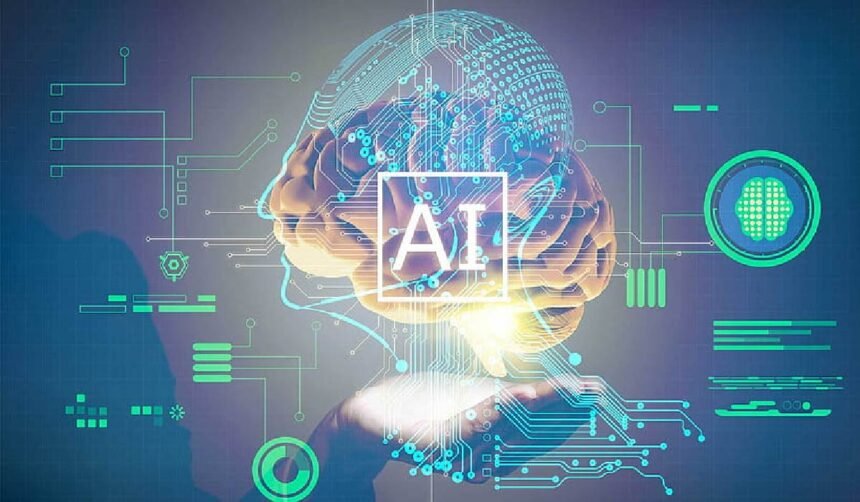The rapid evolution of artificial intelligence (AI) and machine learning (ML) has ushered in a transformative era for businesses across the globe. From streamlining operations to enabling personalized customer experiences, these technologies are not just trends—they are becoming integral to the modern business landscape. As we look toward the future, understanding how AI and ML are reshaping the industry is essential for companies aiming to stay competitive in an increasingly digital world.
Enhanced Operational Efficiency
AI and ML are revolutionizing operational workflows by automating repetitive tasks, reducing human error, and optimizing resource allocation. Businesses are leveraging AI-driven solutions to handle mundane activities such as data entry, inventory management, and customer service inquiries. For instance, chatbots powered by natural language processing (NLP) can handle a significant volume of customer interactions, freeing up human agents to focus on more complex issues.
In manufacturing, predictive maintenance enabled by machine learning algorithms ensures that equipment operates efficiently. By analyzing data from sensors, these systems can predict potential failures and schedule maintenance before a breakdown occurs, thereby reducing downtime and saving costs. This level of precision was unattainable just a decade ago, but AI has made it a reality.
Data-Driven Decision Making
One of the most significant impacts of AI and ML is their ability to process vast amounts of data and derive actionable insights. Businesses now rely on these technologies for real-time analytics, enabling them to make informed decisions faster than ever before. By identifying patterns and trends, companies can tailor their strategies to align with market demands and customer behavior.
For example, AI-powered analytics tools are helping retailers optimize inventory based on customer purchasing habits. Similarly, financial institutions are using machine learning algorithms to detect fraudulent transactions and assess credit risks more accurately. These applications highlight how data-driven approaches, underpinned by AI, are becoming a cornerstone of modern business strategies.
Personalization at Scale
The demand for personalized customer experiences has skyrocketed, and AI is the driving force behind delivering these tailored interactions. Machine learning models analyze customer data—such as browsing history, purchase behavior, and preferences—to create highly personalized recommendations and marketing messages.
Streaming services like Netflix and Spotify are prime examples of how businesses are leveraging AI to offer individualized content. E-commerce platforms, too, utilize recommendation engines to suggest products that customers are most likely to purchase. This ability to personalize at scale not only enhances customer satisfaction but also drives revenue growth.
Emerging Technologies and Applications
As AI and ML continue to evolve, new applications are emerging that promise to disrupt traditional business models. Autonomous vehicles, for example, are poised to revolutionize industries such as logistics and transportation. Companies like Tesla and Waymo are already testing self-driving cars and trucks, which could drastically reduce costs and improve efficiency.
Similarly, AI-powered robotics is making waves in sectors like healthcare and agriculture. Robotic surgical systems, guided by machine learning, are enabling minimally invasive procedures with greater precision. In agriculture, AI-driven drones and sensors are improving crop management by monitoring soil conditions and optimizing irrigation schedules.
In the creative domain, advancements in AI are enabling the development of tools like the ai video generator app, which simplifies video content creation for businesses. These apps leverage machine learning to generate professional-quality videos in minutes, eliminating the need for extensive expertise or expensive equipment. Such innovations demonstrate the versatility of AI in addressing diverse business needs.
Ethical Considerations and Challenges
Despite the myriad benefits, the widespread adoption of AI and ML also raises ethical and practical challenges. Privacy concerns are at the forefront, as businesses collect and process vast amounts of personal data. Ensuring compliance with regulations such as GDPR and CCPA is critical to maintaining customer trust.
Bias in AI algorithms is another pressing issue. If not addressed, these biases can perpetuate existing inequalities, leading to unfair outcomes in areas like hiring, lending, and law enforcement. Companies must prioritize transparency and fairness in their AI systems by implementing rigorous testing and monitoring processes.
Additionally, the rapid pace of AI adoption has created a skills gap in the workforce. While AI automates many tasks, it also necessitates new roles that require expertise in machine learning, data science, and related fields. Businesses must invest in upskilling and reskilling their employees to bridge this gap and fully harness the potential of AI.
The Competitive Edge of AI
In an increasingly saturated market, businesses are turning to AI to gain a competitive edge. Companies that adopt AI early and strategically position themselves as industry leaders. Tools that harness the power of AI—from customer relationship management (CRM) systems to supply chain optimization software—are transforming how businesses operate.
For instance, implementing the best AI tools can significantly improve productivity by automating complex tasks and enhancing decision-making processes. These tools offer unparalleled accuracy and efficiency, enabling businesses to focus on innovation and growth. By leveraging AI effectively, companies can differentiate themselves and thrive in an ever-changing landscape.
Future Trends and Predictions
Looking ahead, the role of AI and ML in business is set to expand even further. The integration of AI with other technologies, such as blockchain and the Internet of Things (IoT), will unlock new possibilities. For example, IoT devices equipped with AI can provide real-time insights into supply chains, improving transparency and efficiency.
Another trend to watch is the democratization of AI. As AI tools become more accessible and affordable, even small and medium-sized enterprises (SMEs) will be able to leverage their benefits. This shift will level the playing field, fostering innovation across industries.
Moreover, advancements in natural language processing and generative AI are poised to revolutionize how businesses interact with their customers. Virtual assistants, powered by sophisticated AI models, will offer seamless and intuitive interactions, enhancing customer engagement.
Conclusion
The future of business technology is undeniably intertwined with the advancements in AI and machine learning. These technologies are not only reshaping industries but also redefining how businesses approach challenges and opportunities. By embracing AI-driven innovations, companies can unlock unprecedented levels of efficiency, personalization, and growth.
As we move forward, businesses must navigate the ethical and practical challenges associated with AI adoption while staying adaptable to emerging trends. Those that succeed will not only survive but thrive in this dynamic era of technological transformation








